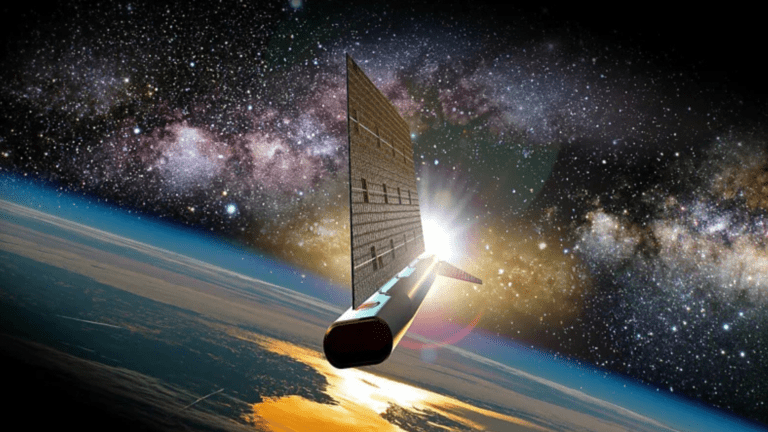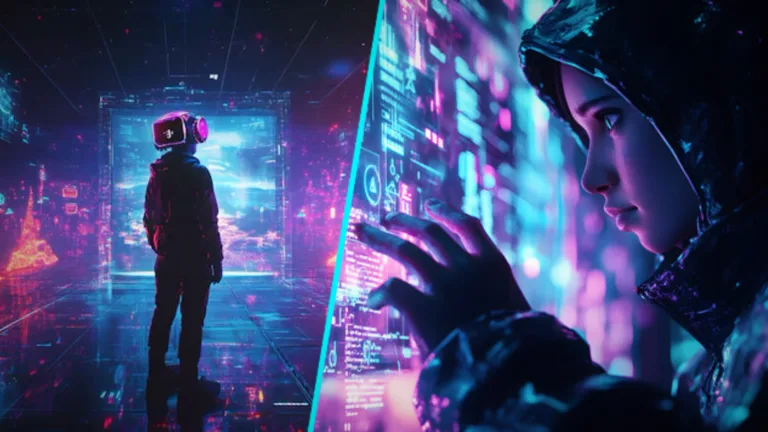Mercedes-Benz Replaces Workers with Humanoid Robots!
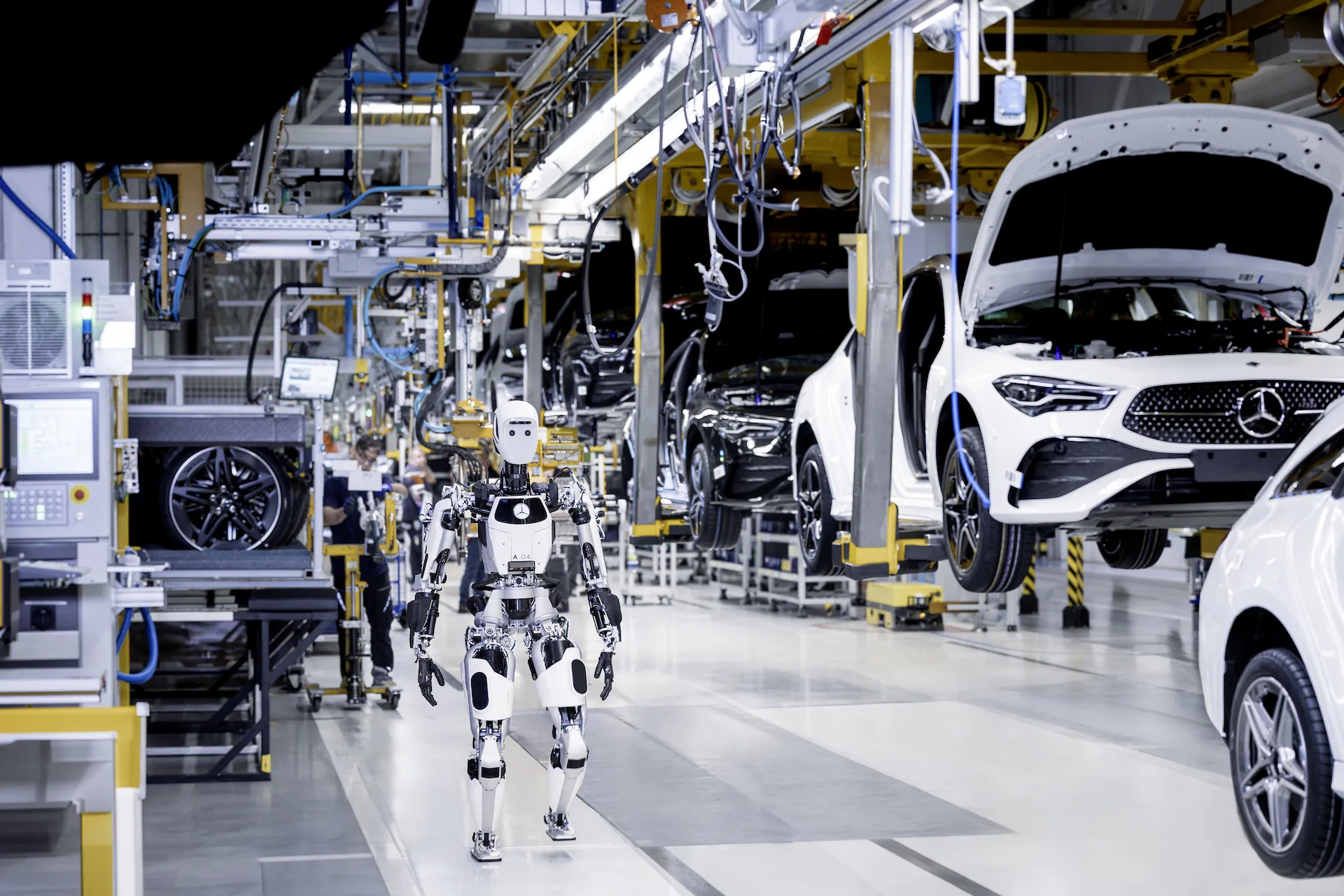
Mercedes-Benz is pushing the boundaries of technology in automotive manufacturing by integrating humanoid robots into its production lines at the Digital Factory Campus in Berlin. With the introduction of AI and robotics, the company is setting the stage for a revolutionary shift in how cars are made. The new addition of Apptronik’s Apollo humanoid robots is expected to automate several critical tasks, raising questions about the future of human workers in the industry.
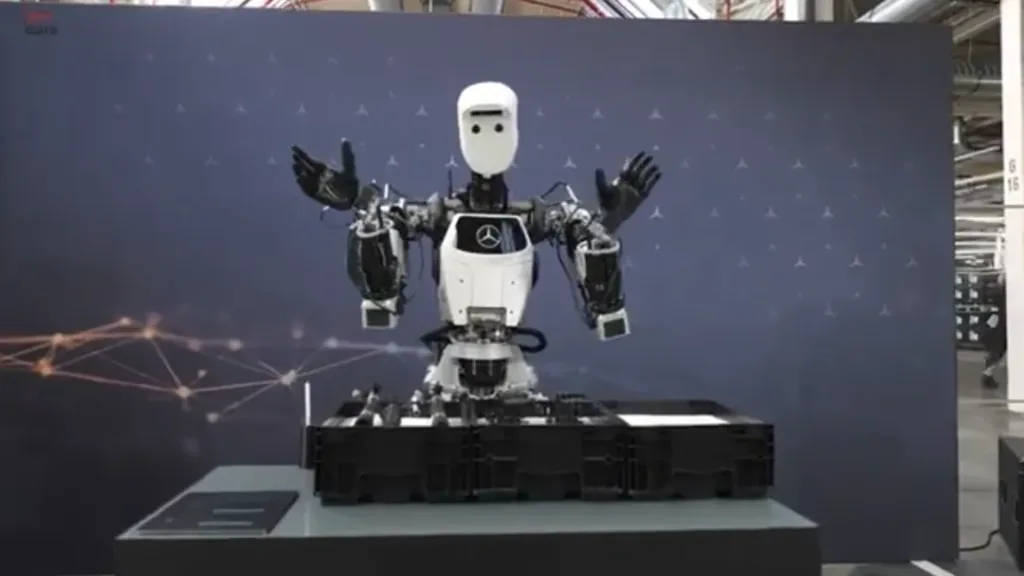
A Bold Step Into the Future
At the heart of Mercedes-Benz’s innovation is its decision to employ humanoid robots for tasks traditionally handled by humans. These robots are being used for repetitive activities such as transporting components and conducting quality checks. By using Apptronik’s Apollo robots, the company aims to reduce its reliance on human labor for these monotonous tasks, which will help improve efficiency and speed in the factory.
What makes these humanoid robots stand out is their ability to learn from real production data. They use augmented reality to enhance their understanding of the tasks at hand, making them highly adaptable to the production process. This means they can seamlessly integrate into existing systems and perform their duties autonomously.
The Role of AI in the Digital Factory
Mercedes-Benz is not stopping at just robots. The company has integrated its MO360 digital production system, which relies on AI-powered smart assistants and chatbots to streamline factory operations. These digital tools help in decision-making, providing real-time data and insights that allow the company to optimize its operations.
The introduction of these technologies marks a significant step towards fully autonomous manufacturing. While robots handle the physical tasks, the AI-powered assistants ensure that decisions are made quickly and accurately, improving overall workflow and productivity.
A Multi-Million Euro Investment in Robotics and AI
This move is not a small one. Mercedes-Benz has invested millions of euros into robotics and AI technology to enhance its production lines. The goal is clear: increase efficiency and reduce costs while pushing the envelope in technological innovation.
This investment could reshape the way factories operate, setting new standards for automation in the automotive industry. But it also brings up an important question: with machines taking over more tasks, what will be the role of human workers in the future?
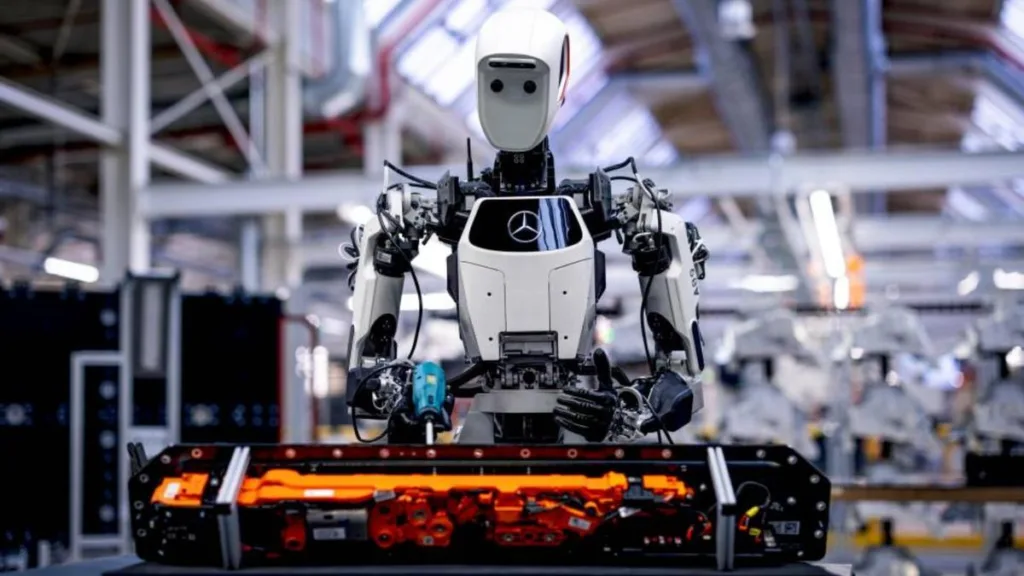
The Future of the Workforce: Robots vs. Humans?
The shift towards automation and AI-powered robots raises an important debate about the future of work. As more companies like Mercedes-Benz adopt these technologies, it’s possible that many human jobs in manufacturing could be replaced by machines. While robots can work faster and more efficiently without needing breaks, human workers bring unique skills, creativity, and problem-solving abilities that machines can’t replicate—at least not yet.
Mercedes-Benz’s move to use humanoid robots is part of a larger trend in manufacturing, where companies seek to automate labor-intensive tasks. However, this doesn’t mean humans will be completely sidelined. In fact, as the factory becomes more technologically advanced, the demand for skilled workers to manage and maintain these AI and robotic systems will likely rise. It’s a shift in the types of jobs that will be available, not a complete replacement of human labor.
The Dawn of a New Era?
Mercedes-Benz’s bold steps into robotics and AI may be a glimpse into the future of manufacturing. The combination of humanoid robots and digital assistants offers tremendous potential for increased efficiency, safety, and precision in production lines. But at the same time, it raises concerns about the displacement of human workers and what that means for the future of the workforce.
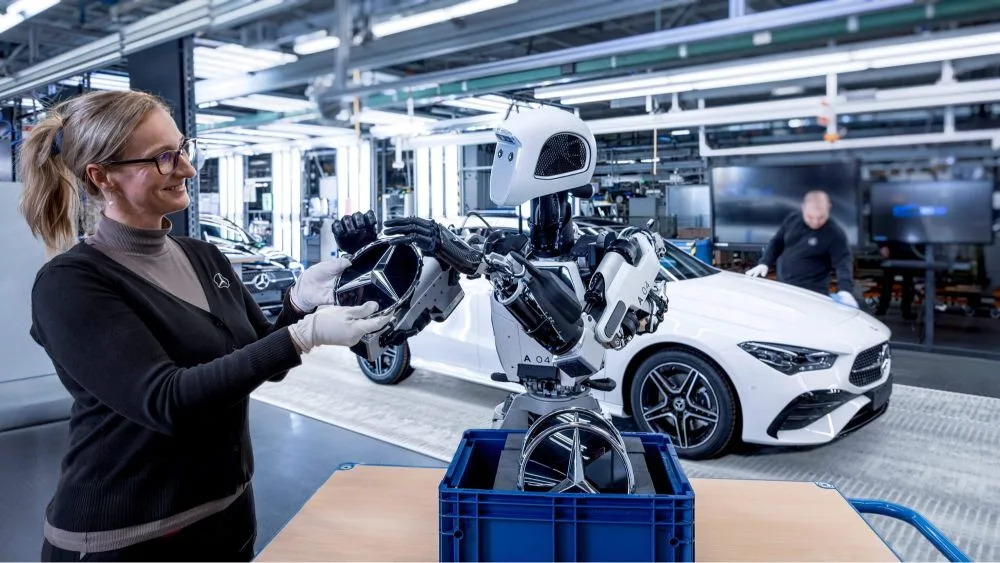
As the company continues to invest in this cutting-edge technology, the world will be watching to see whether other industries follow suit or if human workers will continue to play an essential role in the manufacturing process.
What’s Your Take?
With the rise of robots in factories, we’re left with one big question: Is this the future of manufacturing, or will it lead to the replacement of human jobs? Do you think this shift is a positive change for the industry, or are we moving too fast in relying on machines? Share your thoughts in the comments—like, share, or dislike if you agree or disagree!

